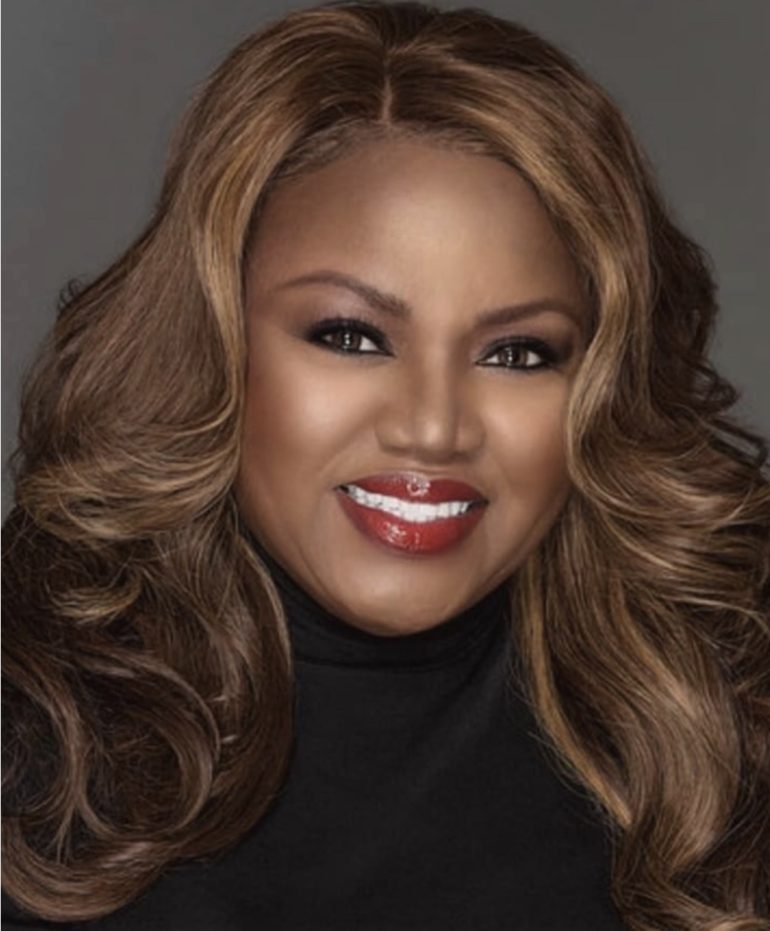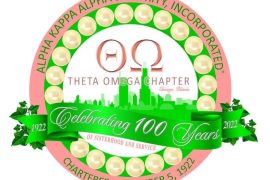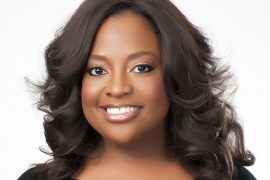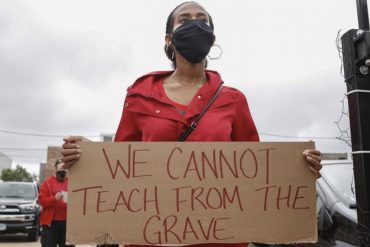Felicia Middlebrooks is a trailblazer. She was the first woman and African American in the nation to co-anchor the Morning Drive News for CBS Radio. She was the test case for the network’s groundbreaking change and the model worked. Now women co-anchor at all CBS Newsradio stations across the country.
For the past 35 years Middlebrooks has co-anchored news for WBBM Newsradio/CBS, Chicago’s number one station. The veteran journalist has won numerous awards for her reporting locally and abroad. Now she has decided to “rewire” and drop the microphone for daily news and pursue other creative endeavors.
Roger Badesch of WGN-AM-720 recently said this about Middlebrooks. “Many people think of radio as just a bunch of interchangeable voices. But so many of us in the news business are more than that. Some, like Felicia, had a voice that allowed for a connection to listeners. A voiced that compelled people to stop, listen and learn.”
She has won numerous awards for leadership and reporting (domestic and global) including the Edward R. Murrow Award for Excellence in News, the Associated Press “Best Reporter Award” and the Lifetime Achievement Award from Sigma Delta Chi Society of Professional Journalists/Chicago Headline Club.
Middlebrooks is Principal of Saltshaker Productions LLC, with offices in Chicago and Los Angeles. Her first documentary film, “Somebody’s Child: The Redemption of Rwanda” won first place for “Best Documentary Short” in the 2005 New York International Film & Video Festival. Felicia is also a published author. She founded the non-profit “Hollywood Comes to Chicago” to help aspiring young screenwriters in the Midwest. She serves on the Board of Directors for three non-profit organizations: “Hands of Hope”, “WINGS: Women in Need Growing Stronger”, and “Children’s Home and Aid Society” (CHASI).
N’DIGO sat down with the award winning and gifted journalist from Gary, IN to talk about her transition from daily radio news to long form storytelling via her company Saltshaker Productions. The multi-media platform will include documentaries and feature films, audiobooks and other projects.
N’DIGO: Your family grew up in Gary, IN. What was your childhood like?
Felicia Middlebrooks: I had a very happy childhood. My parents were part of the Great Migration, from Birmingham, Alabama to Gary, Indiana, where at the time, jobs were plentiful. They were among scores of African Americans, who journeyed north for better work and a respite from Jim Crow. They were very invested in the well being of their 4 daughters, and were deliberate in dispensing wisdom, morals, good habits, discipline, family values and character. Those gifts blessed and guided us into adulthood.
I’m a kid of the 60’s. We enjoyed block club parties, piano lessons every Tuesday, choir rehearsal on Saturday’s and church on Sundays. We also had lots of family outings and traveled during the summer. As a child, I watched the Jackson 5 grow from performances at local school dances and talent shows, to global sensations. Every parent in Gary pushed their kids to support them. We all spent our allowances on 45’s, every time they released a single. Millennials have probably never heard of a 45! Education was of paramount importance in our upbringing, and parents and teachers throughout the city were keen on that messaging to young people. As a result, Gary Public Schools produced scores of success stories.
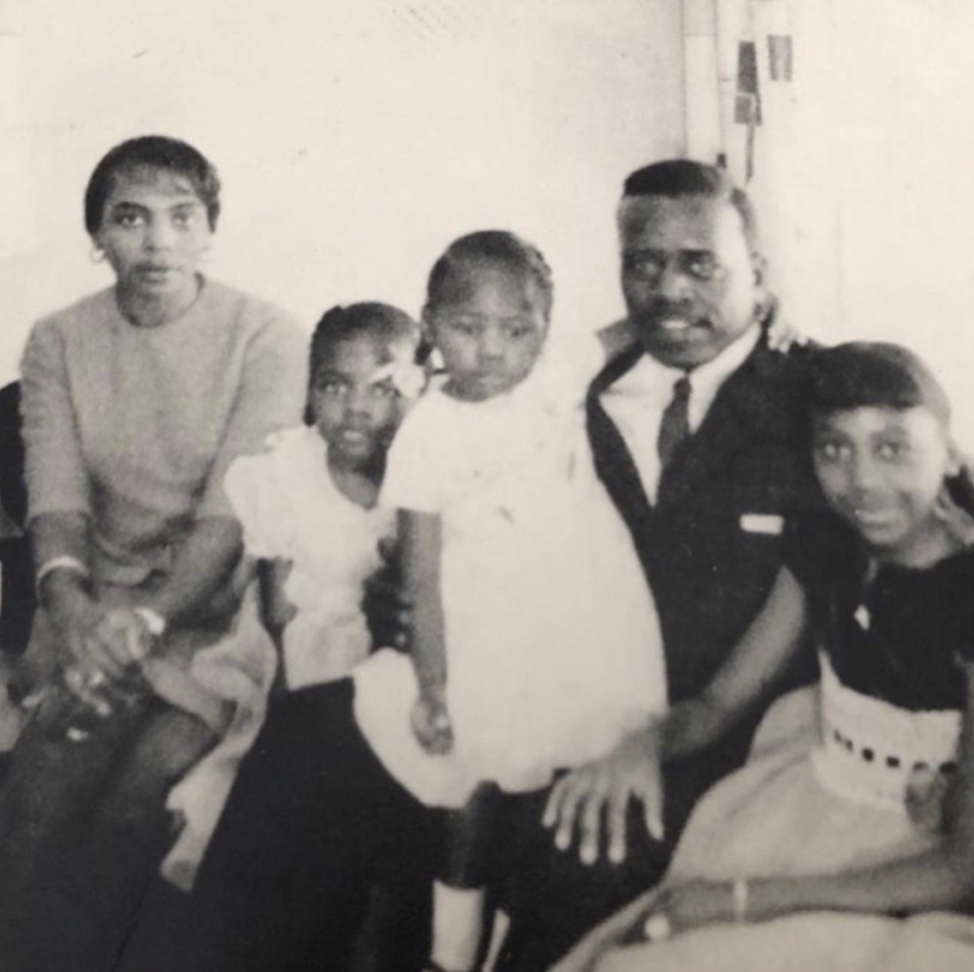
What is your most vivid recollection of growing up near the steel mills industry?
The steel mills were far away from our neighborhood, so I didn’t grow up in their shadows. Gary was founded by Elbert Gary, then CEO of U.S. Steel. Located near the downtown area, it was affectionately called “The Big Mill”, because it dwarfed its competitors: Bethlehem Steel, Youngstown Sheet & Tube which later became Jones & Laughlin and Inland Steel. Because it was a steel town, just about every family had a few steelworkers counted among the local workforce.
At what age did you decide on becoming a reporter?
I was about 13 or 14 when I set my heart on becoming a reporter. I was on the school newspaper staff at Ivanhoe Elementary in the 6th grade, and later at West Side High School, (now called West Side Academy) and I was on the staff of our newspaper called ‘West Side Story’. I fell in love with the art of storytelling. It’s something I’ll remain passionate about, until I take my last breath.
I remember long ago, as a teenager, shopping at a Walgreens’ in the beauty aisle. I saw a box of Clairol hair color, with an African American woman, wearing her hair in an Afro, holding a microphone with a microphone representing some fictitious station. I bought the haircolor, threw away the bottle, cut out the front panel of the box and taped the model’s picture to my bedroom wall. I had no idea back then, I was actually creating a vision board! She represented the possibility for me. I had faith that I too, could realize that dream someday. Eventually, I did!
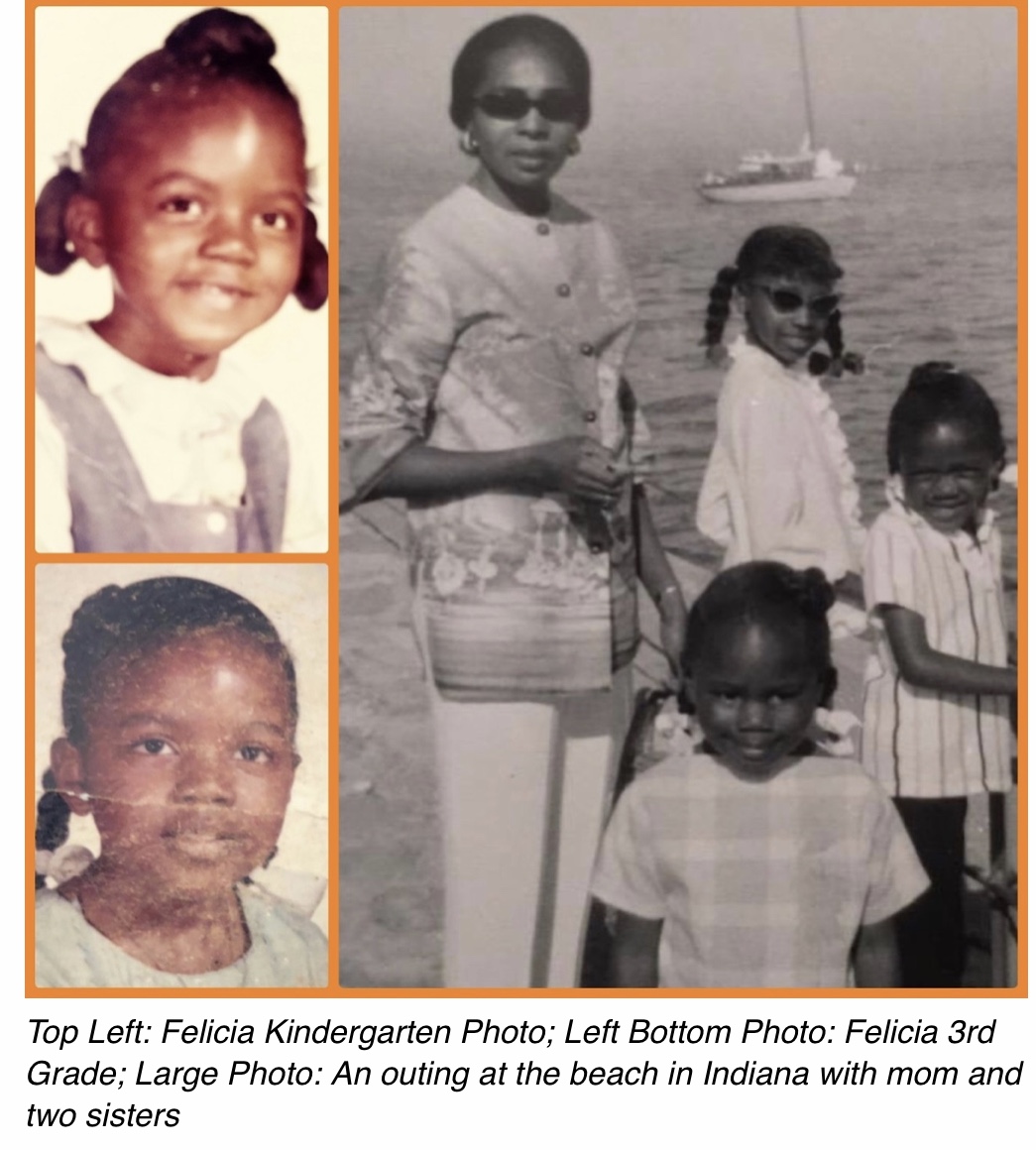
While pursuing a degree at Purdue University, you worked as a steelworker for seven years? How did you persevere?
I was a steelworker for 3-years. After the first semester of my junior year at Purdue University in West Lafayette, Indiana, I was forced to return home to Gary. I was out of money, and my Dad had suffered a pulmonary embolism. It was a difficult time. As he recovered, I knew I needed to stay focused on my goal of returning to school.
I picked up a job at Gary City Hall, working as a secretary for the Human Relations Commission and writing for their newsletter. Then, my younger sister and I got jobs working as laborers at Jones & Laughlin Steel. It was a means to an end for me. We were the first two women to work at the Number 3 Sheet Mill. Fortunately, because our Dad raised us to be strong and independent, we weren’t afraid of work. I learned to use a jackhammer and we banded steel coils with steel straps, to keep them from unraveling in transit. The next time you see a semi-truck on the expressway with steel coils, just know that’s the kind of work I used to do! The pay was fantastic, as was the health insurance, and I still lived at home. I persevered through fatigue, by keeping my eye on the prize. I’d study on lunch breaks and the men with whom we worked, would often trade shifts with me, so I wouldn’t miss any classes at Purdue University Northwest. It took 7-years for me to finally complete my degree (1975-1982) I worked at several radio stations in between, and finished up classes while employed as a steelworker. I wouldn’t change a thing. It taught me humility, discipline and gratitude and helped strengthen my resolve.
When did you start working at WBBM Newsradio Chicago? Were you intimidated by working in a male dominated field? Were you welcomed with open arms?
I wasn’t intimidated by a predominantly all male corporate culture. I’d already been exposed and acclimated as a steelworker. I’d also been the only woman and sole African American working for WBAA-FM in West Lafayette, when I competed for a radio internship. So nah, I wasn’t intimidated. God prepared me. I’d already felt the sting of that existence and had been determined to survive and thrive.
I had the privilege of working at CBS 2/WBBM TV in 1982, first as an intern/producer to Harry Porterfield, then as a telephone receptionist in the newsroom and later as a desk assistant. In February of 1983, I had the great fortune of being hired as a freelancer for WBBM Newsradio, one of the nation’s premier all news operations, and I loved every minute of it! It wasn’t easy, because I was a desk assistant, freelancer and part time anchor/reporter at a radio station in Gary simultaneously.
With three jobs, I was exhausted, but nothing worth having is ever easy. I had to prove myself, daily. Yes, I was a target of racism. That’s just part of the Black experience. I was also the target of sexism, but I knew my worth. I refused to be at the mercy of that twisted, irrational ideology. I knew I was standing on the shoulders of Fannie Lou Hamer and Ida B. Wells and in the end, I believe I earned my colleagues respect, because of my work ethic. I’ve always believed in over-delivering. Love of my job, fueled me in good times and in difficult times and I knew I had an obligation to my ancestors, to shine.
What support team did you have during your time at WBBM Newsradio Chicago?
I have to say my managers were outstanding. When I was promoted from street reporter and weekend anchor, to Morning Drive, there was never a moment when I didn’t have the support of my bosses. They were fully invested in my success. It was a bold move at a time, when women’s credibility as journalists was often questioned. CBS Radio had never had a woman or an African American co-anchor Morning Drive news, at any of its stations across the country. I was the test case, and thankfully, I was able to successfully change the all-male paradigm. Besides my General Manager, News Director and Managing Editor, my support came from family, my church, friends, colleagues in the industry and my mentors.
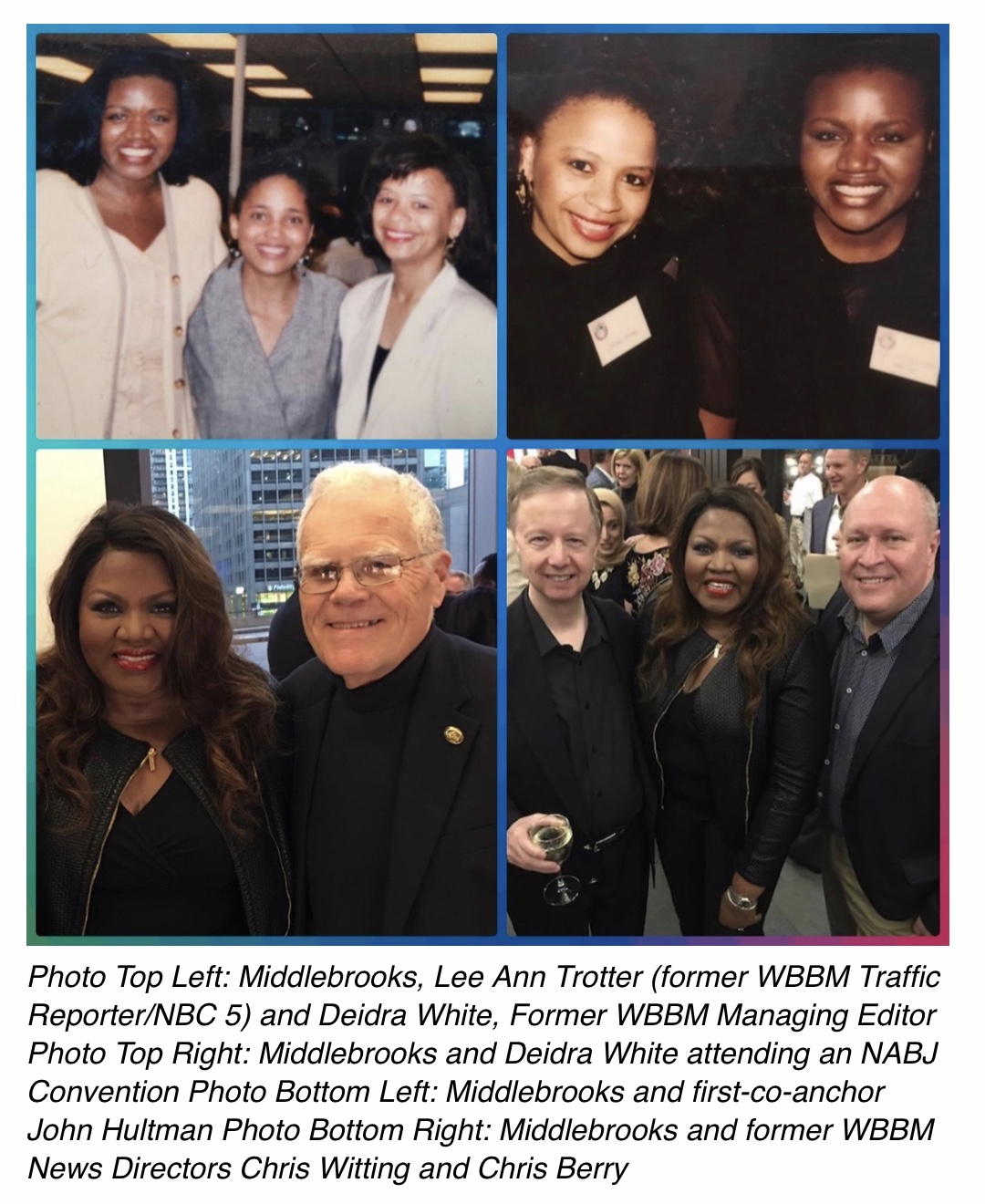
How difficult was it to leave your WBBM family after 35 years?
It might sound strange, but it really wasn’t difficult at all. Fruit eaten before its time is bitter. But I left, when God’s timing dictated it was the right move in my journey. You just know in your spirit, your gut, when it’s time. I believe that God gives each of us an assignment in this life, tied to your skills, talent and gifts.
My work at WBBM was a part of my assignment. As a passionately curious life-long student, I learned volumes as a journalist…about politics, government, health, compassion, survival, what drives and motivates people, the value of life and I could go on and on. My 38-year tenure was but a point in my progression. In life, if we’re brave enough, we can grow, change and positively influence others. I can only hope that while serving at WBBM, I was able to expose truths and deliver information critical to the well being of our listeners. I also hope that I added value to a stellar news operation, of which I am so proud to have played even a small part in its success. I am eternally grateful. Now, it’s on to my next assignment.
Tell us about Saltshaker Productions. When did you create this production company? Talk about the company’s slogan “Food for the Senses, Medicine for the Soul.”
My love of journalism has always run parallel to my love of film. I actually started Saltshaker Productions in 1996. However, because of my full-time commitment to CBS at the time, I could only take on a few projects. I created “Hollywood Comes to Chicago”, a weekend seminar for people who wanted to become screenwriters, authors and producers. There are many talented people, who just didn’t have connections in Los Angeles or New York, so I provided that link. These seminars were successfully held in 1999 and 2000, bringing well known actors and Hollywood executives to Chicago.
My company slogan speaks directly to our objectives: to deliver riveting content in feature and documentary films that enlighten, empower and uplift with transformative storytelling. I am determined to make that happen. I have faith that my production office in West Hollywood will be bustling with activity in the future.
You love storytelling and also obtained a degree in Film. Tell us about your first documentary film “Somebody’s Child.”
I agreed to do a speaking engagement for a dynamic Barrington, Illinois based non-profit called “Hands of Hope” in 1993. That led to a friendship with its founder Vicky Wauterlek. She invited me to join her non-profit, when they were invited to travel to Uganda as guests of President Yoweri Museveni and First Lady Janet Museveni, to see the effects of AIDS on families.
We were also invited to Rwanda, to witness the consequences of the horrific genocide in 1994, in which nearly a million people were slaughtered. As a journalist, the Rwanda portion of the trip captivated me. Colonialism was at the heart of the genocide, which could have been prevented. The trip was a Divine assignment. I only had 2-weeks to assemble my film crew. We shot 44-hours of footage on location. I wrote and directed the film and it changed my life.
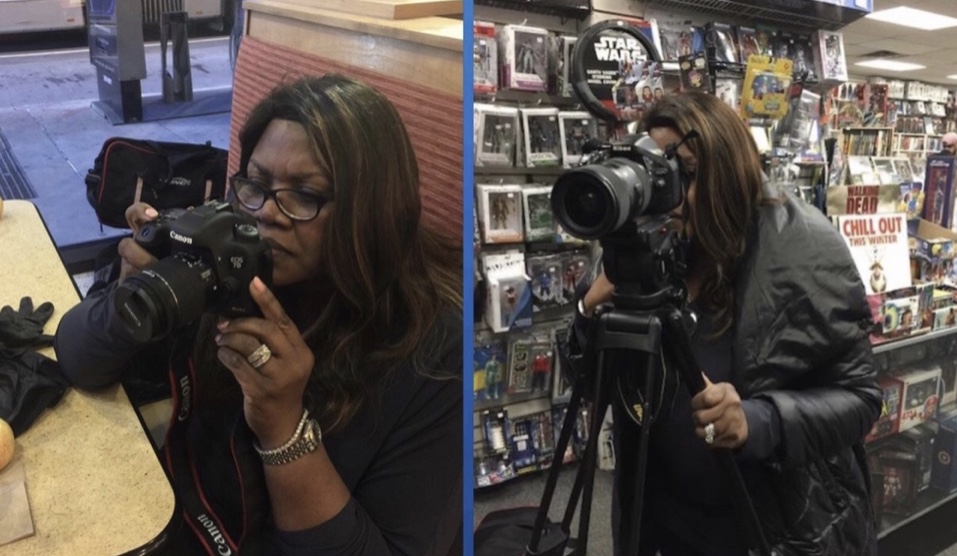
What project/plans do you have for Saltshaker Productions?
Because this is the first time that I’m actually able to run my company full time, I’m going through the traditional rigors of a start-up. I’m working long hours to put the puzzle pieces in place, but it’s rewarding. I’m not at liberty to disclose what’s ahead, but I can tell you that my immediate focus is on podcasting and distribution of my documentary in schools across the nation.
You recently lost your father. I know he was very dear to you and taught you to be independent. What values did he instill in you?
My dad was one of a kind. He left this earth on April 8th, due to heart failure. He did NOT have COVID-19, but we, like thousands of other families, had to endure the strain of a restricted funeral. He didn’t get the Homegoing he deserved.
My dad was well respected in Gary, as a community leader, a Korean War era Disabled Air Force Veteran, a union leader, head of the Deacon Board at our family church and a compassionate, powerful voice for racial equality.
He told my sisters and I, that he wanted us to be able to take care of ourselves, even if we never married. We all joke that between the 4 of us, we could probably build a house, with all of the skills he taught us. Sometimes, our mom would scold him, for treating us like boys. He had us watching war movies and westerns, and we often helped him in his upholstery shop.
He insisted on the pursuit of higher education and he instilled principles in us. I am who I am, in great part, because of my loving, giving father. He was so proud of my achievements. He named me Felicia, but nicknamed me “Lisa”. He’d often say, “Lisa, learn all you can! Once you get it in here (pointing to his head), nobody can take it from you!” He and my mom also admonished us to put God first, in everything we did. I miss my father something awful. He was a gift to me and my sisters. I hope to continue to make him proud.
With the demise of print media, and the ever-present COVID-19 pandemic, how do you think it will affect the future of journalism and news reporting?
Our industry is under threat, like never before and it pains me. That phrase “fake news” is toxic and misleading. To hear public officials diminish our value, sickens me. Journalists are educated and trained observers, on the frontlines of history. We are the fourth estate and our work is critical to the public in virtually every facet of society. Those among us who remain principled and courageous, continuing to operate in integrity, will survive.
COVID-19 has dramatically changed the landscape, and we journalists, many of whom are working remotely, find ourselves adept at Zoom and other digital pathways to coverage. That said, I’m not worried. Truth detests a vacuum. However it is exposed, it will still be exposed, hopefully objectively and professionally.
If you could personally witness any event in history, what would it be?
I’d love to be on the frontlines, when America finally eradicates racism. Now, that would be something.
What’s your most embarrassing moment in radio?
When I was 20, working for a radio station in Gary, I was assigned to cover the Miss Indiana Pageant. I didn’t leave myself enough lead-time, and got caught by a train that got stuck on the tracks. I arrived late at the auditorium during the talent portion of the pageant. I opened the doors and it was dark. I couldn’t see a thing. I proceeded to walk down the stairs, to find an empty seat and stumbled. My cassette recorder, microphone and briefcase went flying into the air. I was so embarrassed! I made my way to a seat, and just kept it moving, as if that debacle never happened. I can laugh now, but it wasn’t funny worth a darn then.
What’s something people wouldn’t know about you?
That I have a secret dream of being a back-up singer for somebody famous. I used to be a soloist in gospel choirs, but it’s been a very long time since I sang, and I’m totally rusty. I shared that dream with Patti LaBelle years ago, when I had the great privilege of interviewing her, but when she asked me to give her a sample, I lost my nerves, got scared and froze up!
In a world full of influencers, who influences you most?
It may sound cliche, but my parents are my greatest influencers. Even up until his death, my Dad was my rock, alongside my Mom. They’ve kept me grounded in faith and they remind me that God has a purpose for every life…which means, I’m obligated to do something significant in the service of others. There are many people whose lives and work I admire, but my chief influencers are my parents.
If you could hear one song performed live by any musician what would it be?
“I Wanna Get Next to You”, performed by Rose Royce. Why? Because my first cousin Kenny Copeland, a member of the band, sings it and I’ve never heard him sing it live, LOL! Rose Royce performed the soundtrack to the movie “Car Wash” in 1976.
My second choice would be anything sung by Stevie Wonder. Anything! He granted me one of the best interviews of my career, when he came to Chicago to introduce his song, “Happy Birthday”, a tribute to Dr. Martin Luther King, Jr.
What’s your guilty pleasure snack?
Cheddar Cheese popcorn!
Looking back, what advice would you give to your 14-year-old self?
Respect and believe in yourself. Have confidence in God’s purpose for your life, and don’t be afraid. It really is going to be alright.


